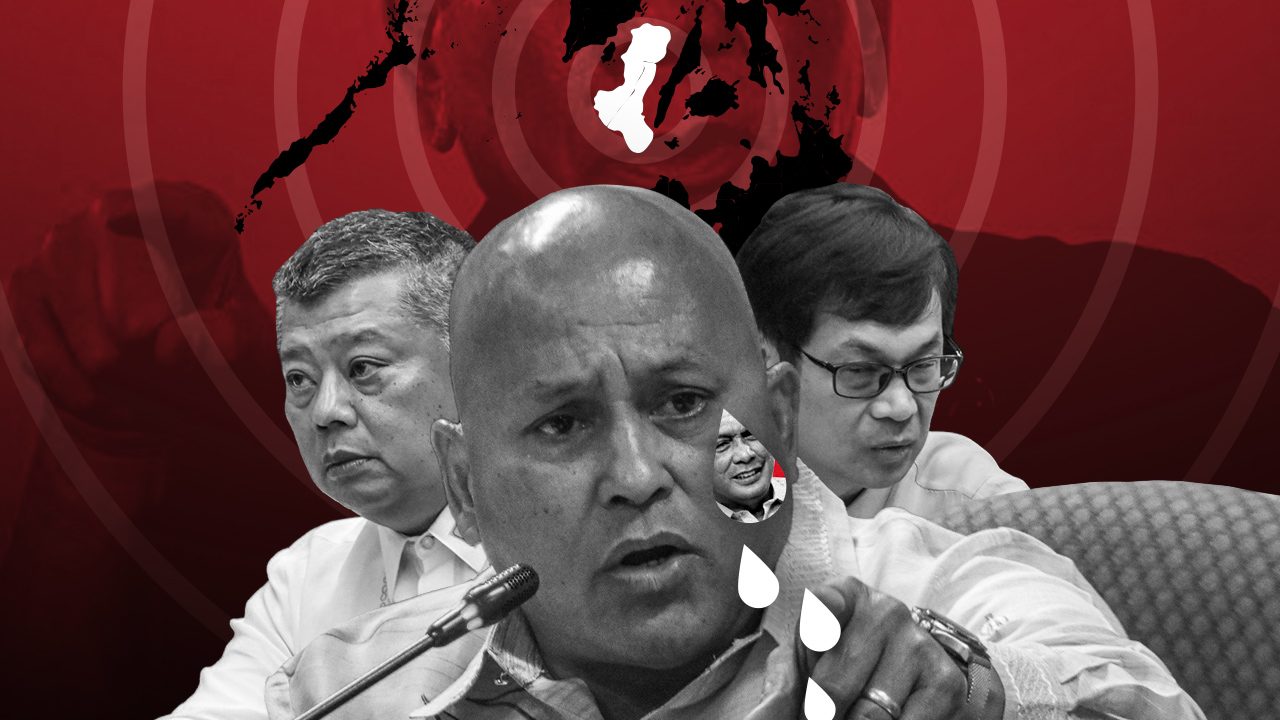SUMMARY
This is AI generated summarization, which may have errors. For context, always refer to the full article.

The Senate hearing on the March 4 attack that killed Negros Oriental Governor Roel Degamo aims at drafting laws to halt what lawmakers call brazen attacks that have been happing for almost a decade.
At least 60 survivors and families of the slain appeared before the senators from April 17 to 19.
Rappler reporters and editors waded through three days of seven to 10-hour hearings.
As senators and their political allies threw out pet solutions to the problem of impunity, we were gripped by deja vu.
I’m Inday Espina-Varona, Rappler’s head of Regions. I’ve covered bloodshed on Negros island since the 1980s.
Lawmakers and executive officials at the hearings of the Senate committee on public order and dangerous drugs expressed outrage at the involvement of police officials in numerous Negros Oriental crimes or in cover-ups.
The murder of nine people, including Degamo, and the wounding of 17 others roused residents to break the silence that had kept hundreds of killings under wraps in half a decade.
Bato’s tears
At the close of the third day of hearings, committee chairman Senator Ronald dela Rosa, wept in shame and sorrow because he felt people no longer trusted cops.
Break your silence, Dela Rosa urged province folk. “A refusal to stay silent is one sure step to address violence,” he said.
What wasn’t said was, more than 100 residents of Negros Occidental were red-tagged first and then killed precisely for speaking up on abuses and for defending victims of human rights violations.
From July 2016 to August 27, 2019 – earlier than most of the cases taken up by the Senate committee – gunmen killed 116 rights defenders: 66 in Negros Oriental and 50 in Negros Occidental.
Dela Rosa was president Rodrigo Duterte’s national police chief when the first barrage of killings happened. Many of these were linked to agrarian unrest and alleged land grabbing by local political dynasties.
Rappler closely covered many of these cases.
Half of the killings happened during pre-dawn joint operations, with families dragged out of their homes before executions commenced.
Riding in tandem gunmen staged daylight ambuscades that killed lawyers, teachers, farmers, doctors, and councilors.
Many had the same hallmarks of the brazen, we’ll-get-away-with-it attitude that marked the killing of Degamo.
The fear grew as years went by. At least two lawyers handling agrarian claims and labor cases of agriculture workers were gunned down.
‘All out war’
At the hearing, officials vowed to crush the perpetrators of killings and return the peace to Negros Oriental.
Yet their proposals would just consolidate the constriction of democratic space.
Duterte is gone, but, as the Senate hearings show, the country continues to teeter on the “slippery slope to authoritarianism.”
For instance, Justice Secretary Boying Remulla just transformed killings over political feuds into a terrorist conspiracy.
He justified the use of a draconian law as a means of “breaking the impasse” and forcing the return of suspended Negros Occidental 3rd District Representative Arnie Teves.
This is precisely why lawyers, activists, and journalists challenged this overbroad and vague law in the Supreme Court.
Even worse is the power of the Anti-Terror Council to unilaterally declare anyone a terrorist sans court processes.
The most chilling moment, however, was hearing Dela Rosa call for “all-out war” against e-sabong.
It was the same worldview that fueled Duterte’s “war on drugs.” His “kill” mantra snuffed out the lives of 6,252 Filipinos in police operations as of May 31, 2022, and from 27,000 to 30,000 in vigilante-style hits.
Like Duterte, Dela Rosa had jeered at rights defenders. He also equated the defense of human rights with support for drug lords.
Drug “addicts” were vermin to be crushed. His former boss vowed to protect cops faced with human rights complaints.
The Commission on Human Rights, a government body, warned that Duterte and his allies created “a dangerous fiction” – dissent as terrorism.
On both counts, demonizing targets were meant to foster a false sense of security, the ultimate in they-against-us among citizens.
Negros Oriental cops blocked victims’ families trying to work through the legal justice system. Police in Duterte’s drug war obstructed justice every step of the way, even in defiance of the Supreme Court.
Speaking up can break the violence. But until killers are held accountable and the infrastructure of injustice is smashed, Filipinos will die. – Rappler.com
Add a comment
How does this make you feel?
![[Judgment Call] That messy conversation about divorce](https://www.rappler.com/tachyon/2024/06/judgement-call-messy-conversation-divorce.jpg?resize=257%2C257&crop=455px%2C0px%2C1080px%2C1080px)
![[Judgment Call] Google’s SGE – and why it matters to you](https://www.rappler.com/tachyon/2024/05/google-sge-may-23-2024.jpg?resize=257%2C257&crop_strategy=attention)
![[Judgment Call] Philippine seas and a healthy dose of transparency](https://www.rappler.com/tachyon/2024/05/judgement-call-ayungin-shoal-may-16-2024.jpg?resize=257%2C257&crop=316px%2C0px%2C720px%2C720px)
![[Judgment Call] Finding another Caloy Yulo](https://www.rappler.com/tachyon/2024/05/finding-another-carlos-yulo.jpg?resize=257%2C257&crop=252px%2C0px%2C720px%2C720px)
![[Judgment Call] Who’s after Quiboloy? The media should be.](https://www.rappler.com/tachyon/2024/04/judgement-call-quiboloy-media-2.jpg?resize=257%2C257&crop=484px%2C0px%2C1080px%2C1080px)
There are no comments yet. Add your comment to start the conversation.